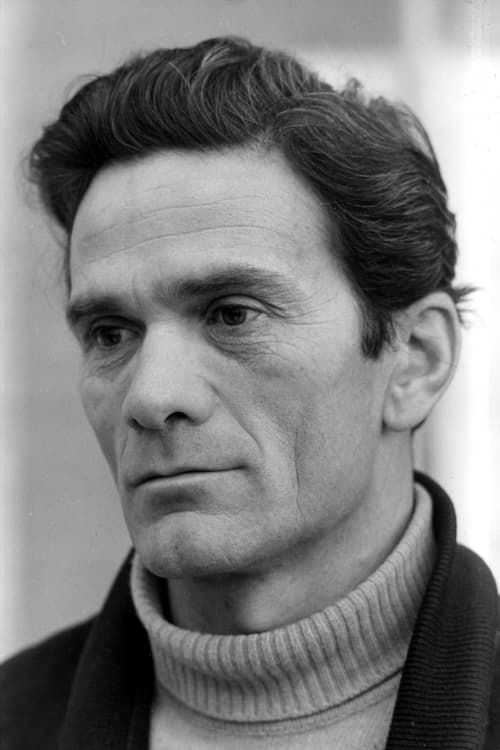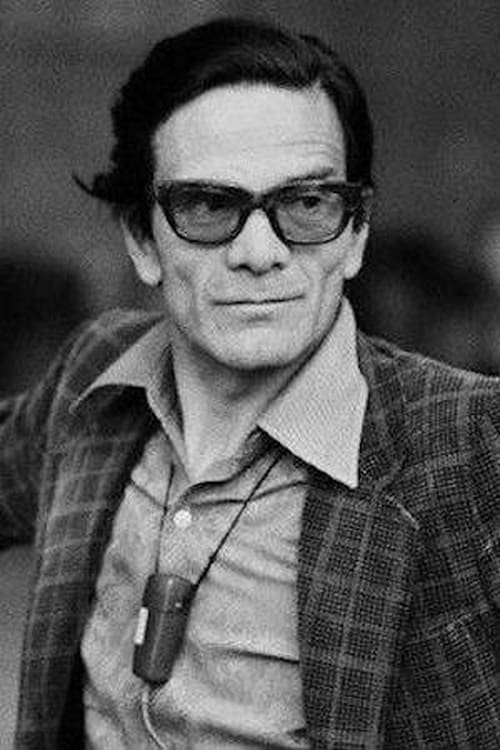
Himself
A 16 mm film recovered from the French director's boxes, with images of Varda, Pasolini and New York. Pasolini is shown walking in the Big Apple (where he went to present 'Hawks and Sparrows').
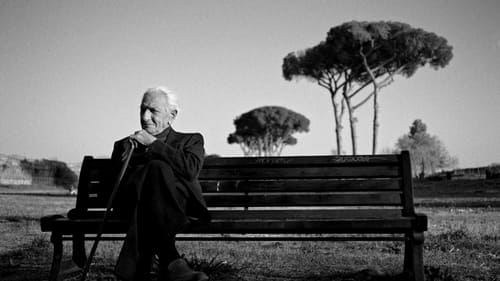
Self - Filmmaker (archive footage)
La vida del legendario fotoperiodista italiano Paolo Di Paolo a través de sus fotografías, que captan la esencia de una Italia fascinante y turbulenta, la que habitaron Anna Magnani y Pier Paolo Pasolini, un país que ya no existe.

3,700 km of coastline, a Fiat 1100, and an old travel diary, those are the ingredients for Pepe Danquart’s documentary. Following the footsteps of the great Italian thinker Pier Paolo Pasolini, the filmmaker gains a deep insight into the social reality of present-day Italy. The country is massively affected by globalization, migration and the phenomenon of mass tourism, which, more than ever, is characterised by the same hedonistic conformity that Pasolini lamented more than fifty years ago. Ahead of me the South is a poetic contemporary document, a kaleidoscopic picture of the Italy of today.
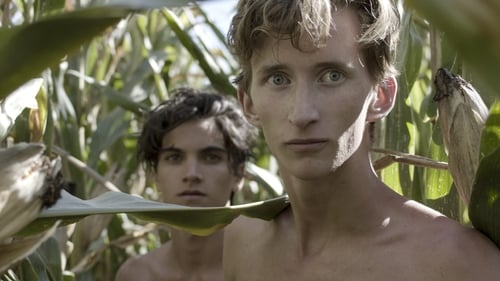
Self (archive footage) (uncredited)
A unique chance to explore Pier Paolo Pasolini's youth through the voice and the body of his direct cousin, writer and poet Nico Naldini.
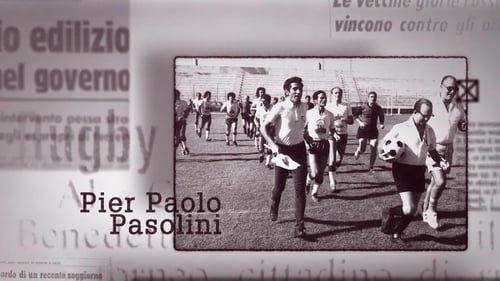
On September 14, 1975, Pier Paolo Pasolini played his last game of football, before his death, in San Benedetto del Tronto. “The last match of Pasolini” starts from a pretext of a football game, to tell a historical period that was fundamental for the whole of Italy, with its contradictions and tragedies, through an apparently playful vision of Pasolini, but that allows us to understand better the importance of the Italian poet and director.
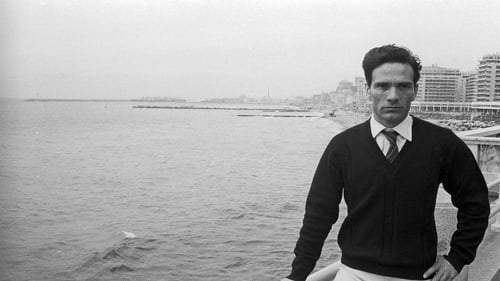
Himself (archive footage)
In the summer of 1959, as a correspondent for “Successo” magazine, Pasolini traveled along the Italian coast. In 1963, he documented Italian sex behavior, explained in “Love Meetings,” a 1964 film. In the winter of 1970-71, he witnessed the plight of the most impoverished Italian population and the innocents who suffered the boot of state power. After these three journeys, he concluded that Italian society had changed dramatically for the worse throughout all those years.


A documentary that recounts the impressively lucid visions and gazes with which Pasolini described and experienced the lands from his Casarsa eastward, through Idria, the Grado lagoon and finally Istria. The border, understood as a physical, historical and geographic but also metaphorical limit, is an interesting key to recount Pasolini's life: a journey that allows us to tell some lesser-known sides of the life of a great intellectual of the last century, who with keen anticipation glimpsed profound truths about the cultural and social changes taking place.

Interactive documentary about Pier Paolo Pasolini.

Se stesso
A journey back through Dacia Maraini's and her trips around the world with her close friends cinema director Pier Paolo Pasolini and opera singer Maria Callas. An in-depth story of this fascinating woman's life. Maraini's memories come alive through personal photographs taken on the road as well as her own Super 8 films shot almost thirty years ago.

Self (archive)
This elegiac essay explores the year leading up to Pier Paolo Pasolini's murder in 1975. Through staging scenes from his last, unfinished novel, to exploring his polemical essays, and his first and last film, this experimental biography documents the final words of one of the most important filmmakers of the 20th century.

Editor
An attempt to reconstruct the complete version of Pier Paolo Pasolini's segment of La rabbia.

Writer
An attempt to reconstruct the complete version of Pier Paolo Pasolini's segment of La rabbia.

Self (archive footage)
An attempt to reconstruct the complete version of Pier Paolo Pasolini's segment of La rabbia.

Director
An attempt to reconstruct the complete version of Pier Paolo Pasolini's segment of La rabbia.

Self (archive footage)
Based upon Vincenzoni's biography, "Pane e cinema", the documentary traces the story of the screen play writer who invented many stories that became blockbusters throughout the world.

The story of La Rabbia by Pier Paolo Pasolini and Giovanni Guareschi, a movie lost in the archives of a laboratory in Rome, and recently re-discovered.

Self (archive footage)
Este revelador documental del director Philippe Kohly examina la legendaria vida de la reconocida soprano Maria Callas, desde su problemática infancia en la ciudad de Nueva York hasta su carrera internacional llena de escándalos pero triunfante en la ópera. Con entrevistas de archivo con la propia Callas y filmaciones de contemporáneos como su amante Aristóteles Onassis, esta celebración de "La Divina" rinde homenaje a su legado perdurable unas tres décadas después de su muerte.
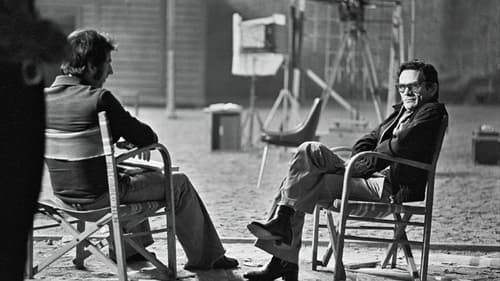
Se stesso
We are on the set of "Salò or the 120 days of Sodom". Pasolini lets a small camera team led by the journalist Gideon Bachmann follow him around engaging him in a long and extraordinary interview/conversation. The interview turns into a long, clear-sighted and violent attack on society that accompanies photos of the set in a surprising juxtaposition of film and reality, revealing Pasolini's metaphorical portrait of modernity.

Interviewee (archive)
Documentary about the making of Pier Paolo Pasolini's The Canterbury Tales (1972), and particularly focusing on the many edits and cut scenes that were made before the film's release.

A sequence of unpublished photographs by Deborah Beer taken during the filming of the torture scenes on the set of "Salo, or the 120 Days of Sodom" is accompanied by the voice - recorded by Gideon Bachmann - of Pier Paolo Pasolini who directs the actors: a portrait of the director and his way of working that testifies its determined and passionate “filmmaking"

Interviewee
A documentary featuring archival footage of Pasolini discussing his views on language, film, and modern society.

Some of the scenes cut from the final editing of Medea by Pier Paolo Pasolini, fortunately found by L’Officina - a historic Roman film club born in the 1970s - on the initiative of Cinemazero in Pordenone have been preserved and digitized at the Cineteca del Friuli. These materials, with the care of the Pasolini scholar Luciano De Giusti, have been reassembled, accompanied by texts / readings and original music by Paolo Corberi: here are the "Visions of the Medea (traces of a dreamed film)", now a very important document to reconstruct the creative process of production and reliving the poetic / lyrical aura of the film's protagonists and places, including the lagoon of Grado (GO).

A thirty-three-minute documentary featuring interviews with director Pier Paolo Pasolini, actor-filmmaker Jean-Claude Biette, and Pasolini friend Ninetto Davoli.

Self (archive footage)
It is a chronological compilation of film clips, awards ceremonies and brief period interviews gathered by journalist Sandro Lai.

Archive footage
Documental rodado en varios enclaves italianos que marcaron la vida de Pasolini (Casarsa, su pueblo natal; la comarca de Friuli, donde luchó con los campesinos contra los "latifundistas"; Pordenone, donde está el archivo fotográfico y documental más completo sobre su obra o Roma, donde vivió la mayor parte de su vida), comienza y termina en la playa de Ostia, lugar donde fue hallado el cadáver del cineasta en la madrugada del 2 de noviembre de 1975, en claro homenaje a la propia concepción de la muerte como "principio y fin" de la que hizo gala el director.

Self (archive footage)
Federico Fellini was one of the most individual and thought provoking directors who based most of his films upon his own reflections, dreams, life events and fantasies, who did not convey any special message for humanity but regarded cinema simply as entertainment. Is there an answer to everything? Can it possibly be? If yes, then life can no longer be so curious, so dynamic, so creative...

Book
Adapted from an autobiographical book by Pier Paolo Pasolini.

Himself
A documentary about the Italian cinema as art form and industry.

Short Story
Fausto and Gilda who are married for a long time and love themselves deeply. But Gilda dies leaving Fausto alone with their 8-year-old daughter and a governess. Being shaken, he retreats to his country house. His female doctor is the only one who visits him. He starts being plagued every night by wet dreams, visions and hallucinations of some women and his wife, who insistently asks him to join him. After some time, Fausto can't distinguish any longer what is reality or dream.

Screenplay

Self (archive footage)
Traces the life of Anna Magnani, her creations, her successes, her triumphs, her boycotted career, her nonconformism, her anxieties, her generosity ... Punctuated with photos that tell her career in theater and cinema, Extracts of films, this documentary portrait also gives the floor to his friends and relatives, from Roberto Rossellini to Marcello Mastroianni, through Federico Fellini.

Lui-même

Director
En una mansión, cuatro señores se reúnen con cuatro exprostitutas y con un grupo de jóvenes de ambos sexos, partisanos o hijos de partisanos, que han sido hechos prisioneros. Nadie en la casa puede eludir las reglas del juego establecidas por los señores; toda transgresión se castiga con la muerte. Además, ellos gozan de la facultad de disponer a su antojo de la vida de los cautivos.

Writer
En una mansión, cuatro señores se reúnen con cuatro exprostitutas y con un grupo de jóvenes de ambos sexos, partisanos o hijos de partisanos, que han sido hechos prisioneros. Nadie en la casa puede eludir las reglas del juego establecidas por los señores; toda transgresión se castiga con la muerte. Además, ellos gozan de la facultad de disponer a su antojo de la vida de los cautivos.
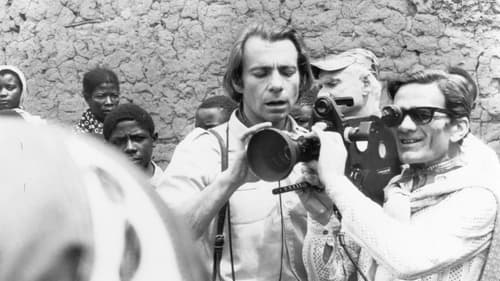
Self (uncredited)
The director presents takes and scenes filmed on location in Africa for a film-that-never-was, a black Oresteia.

Editor
The director presents takes and scenes filmed on location in Africa for a film-that-never-was, a black Oresteia.

Writer
The director presents takes and scenes filmed on location in Africa for a film-that-never-was, a black Oresteia.

Director
The director presents takes and scenes filmed on location in Africa for a film-that-never-was, a black Oresteia.

Writer
The capital of Yemen, the city of Sana'a, holds an important part of history within its walls filled with medieval architecture and culture. But that same culture was about to disappear with the country's modernization which came after the civil war in the 1960's. To impeach such modern invasion, director Pasolini pledges to UNESCO for the recognition of Sana'a as a World Heritage Site.

Narrator (voice)
The capital of Yemen, the city of Sana'a, holds an important part of history within its walls filled with medieval architecture and culture. But that same culture was about to disappear with the country's modernization which came after the civil war in the 1960's. To impeach such modern invasion, director Pasolini pledges to UNESCO for the recognition of Sana'a as a World Heritage Site.

Director
The capital of Yemen, the city of Sana'a, holds an important part of history within its walls filled with medieval architecture and culture. But that same culture was about to disappear with the country's modernization which came after the civil war in the 1960's. To impeach such modern invasion, director Pasolini pledges to UNESCO for the recognition of Sana'a as a World Heritage Site.

Writer
Película inspirada en cuentos eróticos orientales. La historia principal trata de un inocente joven que busca a su amada, una esclava de la cual fue separado al ser víctima de un engaño.

Director
Película inspirada en cuentos eróticos orientales. La historia principal trata de un inocente joven que busca a su amada, una esclava de la cual fue separado al ser víctima de un engaño.

Himself
Documentary about the Italian cities Orte and Sabaudia.
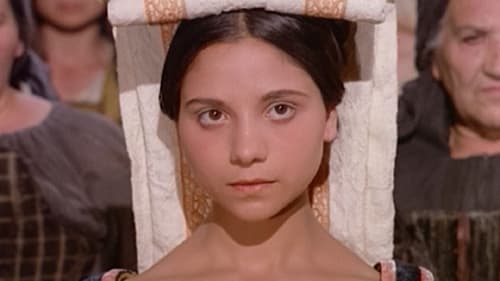
Writer
Roma, 1850. Dos jóvenes condenados por asesinato esperan en la cárcel a ser ejecutados, y pasan sus últimas horas contándose mutuamente historias de castración y lujuria... (FILMAFFINITY)
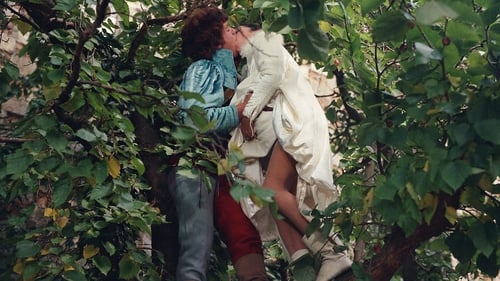
Music Supervisor
Un grupo de peregrinos que van a Canterbury se entretienen narrando cuentos: el joven Nicola conquista a la mujer de un rico leñador aprovechando su superstición; dos estudiantes se vengan de un molinero que roba harina a sus clientes; el inocente Perkin es expulsado de su pueblo y acaba arruinado; una insaciable viuda de Bath destruye con su fogosidad a sus maridos para heredar sus bienes; un rico y anciano solterón decide casarse con la jovencísima Maggio, que lo traiciona con un hermoso joven. Mientras tanto, un escribiente toma nota de los sucesos, analizando con humor e ironía las debilidades humanas.

Screenplay
Un grupo de peregrinos que van a Canterbury se entretienen narrando cuentos: el joven Nicola conquista a la mujer de un rico leñador aprovechando su superstición; dos estudiantes se vengan de un molinero que roba harina a sus clientes; el inocente Perkin es expulsado de su pueblo y acaba arruinado; una insaciable viuda de Bath destruye con su fogosidad a sus maridos para heredar sus bienes; un rico y anciano solterón decide casarse con la jovencísima Maggio, que lo traiciona con un hermoso joven. Mientras tanto, un escribiente toma nota de los sucesos, analizando con humor e ironía las debilidades humanas.

Geoffrey Chaucer
Un grupo de peregrinos que van a Canterbury se entretienen narrando cuentos: el joven Nicola conquista a la mujer de un rico leñador aprovechando su superstición; dos estudiantes se vengan de un molinero que roba harina a sus clientes; el inocente Perkin es expulsado de su pueblo y acaba arruinado; una insaciable viuda de Bath destruye con su fogosidad a sus maridos para heredar sus bienes; un rico y anciano solterón decide casarse con la jovencísima Maggio, que lo traiciona con un hermoso joven. Mientras tanto, un escribiente toma nota de los sucesos, analizando con humor e ironía las debilidades humanas.

Director
Un grupo de peregrinos que van a Canterbury se entretienen narrando cuentos: el joven Nicola conquista a la mujer de un rico leñador aprovechando su superstición; dos estudiantes se vengan de un molinero que roba harina a sus clientes; el inocente Perkin es expulsado de su pueblo y acaba arruinado; una insaciable viuda de Bath destruye con su fogosidad a sus maridos para heredar sus bienes; un rico y anciano solterón decide casarse con la jovencísima Maggio, que lo traiciona con un hermoso joven. Mientras tanto, un escribiente toma nota de los sucesos, analizando con humor e ironía las debilidades humanas.

In this movie, director Volker Koch wants to reveal "petty-bourgeois fixations of consciousness and late capitalist myths of happiness". The protagonists: an American hustler, a drama student, a Munich waitress and her boyfriend who hope for money, a career and luck from a trip to Rome together.
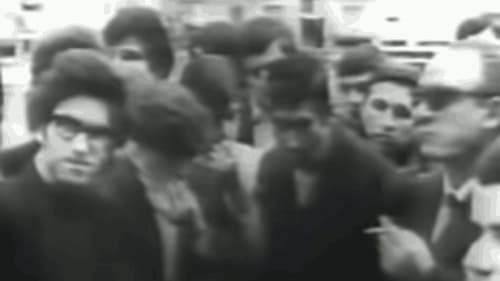
Director
On December 12th, 1969 a bomb went off at the Piazza Fontana in Milan that killed 16 people and injured 84. Railway worker and anarchist activist Giuseppe Pinelli was picked up, along with other anarchists, for questioning regarding the attack. He was held and interrogated for three days, longer than Italian law specified that people could be held without seeing a judge. Just before midnight on December 15, 1969 Pinelli was seen to fall to his death from a fourth floor window of the Milan police station. Although officially deemed a suicide, the reporter who watched the fall from the street maintained that he was pushed. Three police officers interrogating Pinelli were put under investigation in 1971 for murder but charges were dropped because of lack of evidence.

Idea
On December 12th, 1969 a bomb went off at the Piazza Fontana in Milan that killed 16 people and injured 84. Railway worker and anarchist activist Giuseppe Pinelli was picked up, along with other anarchists, for questioning regarding the attack. He was held and interrogated for three days, longer than Italian law specified that people could be held without seeing a judge. Just before midnight on December 15, 1969 Pinelli was seen to fall to his death from a fourth floor window of the Milan police station. Although officially deemed a suicide, the reporter who watched the fall from the street maintained that he was pushed. Three police officers interrogating Pinelli were put under investigation in 1971 for murder but charges were dropped because of lack of evidence.
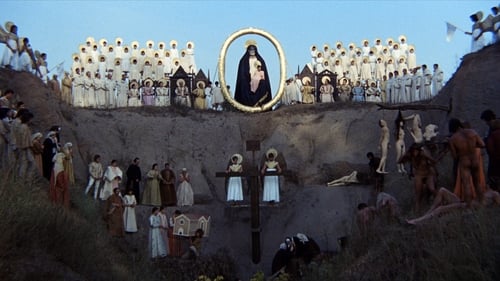
Allievo di Giotto
Basada en "El Decameron" de Boccaccio. Pasolini recrea con su personal estilo los cuentos eróticos y divertidos de esta obra universal. La película empieza con el cuento de Andreuccio de Perugia que se deja convencer por unos ladrones para quitarle un rubí al cadáver de un arzobispo. Otros cuentos están dedicados a temas licenciosos. Por ejemplo, el de Masetto de Lamporecchio, un hortelano que se finge sordomudo y mentecato para entrar al servicio de las monjas de un convento y experimentar con ellas las delicias del lecho compartido.

Writer
Basada en "El Decameron" de Boccaccio. Pasolini recrea con su personal estilo los cuentos eróticos y divertidos de esta obra universal. La película empieza con el cuento de Andreuccio de Perugia que se deja convencer por unos ladrones para quitarle un rubí al cadáver de un arzobispo. Otros cuentos están dedicados a temas licenciosos. Por ejemplo, el de Masetto de Lamporecchio, un hortelano que se finge sordomudo y mentecato para entrar al servicio de las monjas de un convento y experimentar con ellas las delicias del lecho compartido.

Director
Basada en "El Decameron" de Boccaccio. Pasolini recrea con su personal estilo los cuentos eróticos y divertidos de esta obra universal. La película empieza con el cuento de Andreuccio de Perugia que se deja convencer por unos ladrones para quitarle un rubí al cadáver de un arzobispo. Otros cuentos están dedicados a temas licenciosos. Por ejemplo, el de Masetto de Lamporecchio, un hortelano que se finge sordomudo y mentecato para entrar al servicio de las monjas de un convento y experimentar con ellas las delicias del lecho compartido.
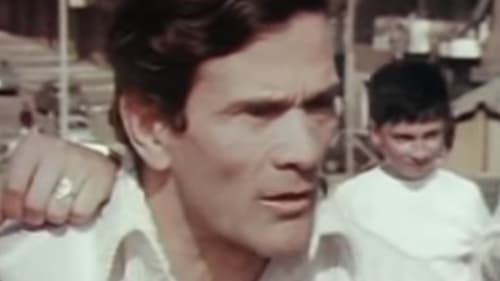
Documentary about Italian movie director Pier Paolo Pasolini, with interviews with some of his actors and friends.
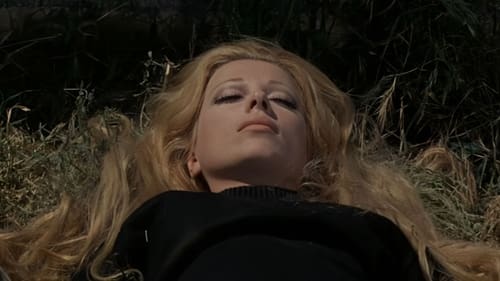
Supervising Technical Director
Two anarchistic brothers live by petty thievery and try to recover from their Catholic upbringing. Bandiera and Rabbino were children when they pushed their drunk of a father out of a window for killing their pet sheep. When a girl is raped by her father, she is brought by young "rescuers" to the home of the two brothers who then watch their friends take advantage of her sexually. The brothers take her in, and the three live happy and celibate if not uneventful lives until the brother's are sent to jail for stealing.

Screenplay
Two anarchistic brothers live by petty thievery and try to recover from their Catholic upbringing. Bandiera and Rabbino were children when they pushed their drunk of a father out of a window for killing their pet sheep. When a girl is raped by her father, she is brought by young "rescuers" to the home of the two brothers who then watch their friends take advantage of her sexually. The brothers take her in, and the three live happy and celibate if not uneventful lives until the brother's are sent to jail for stealing.

Story
Two anarchistic brothers live by petty thievery and try to recover from their Catholic upbringing. Bandiera and Rabbino were children when they pushed their drunk of a father out of a window for killing their pet sheep. When a girl is raped by her father, she is brought by young "rescuers" to the home of the two brothers who then watch their friends take advantage of her sexually. The brothers take her in, and the three live happy and celibate if not uneventful lives until the brother's are sent to jail for stealing.

Writer
Adaptación de la tragedia griega de Eurípides en la que Pasolini muestra la trágica confrontación entre dos culturas incompatibles: el mundo mágico e irracional de Medea y el mundo racional de Jasón. Supuso la única incursión en el cine de la gran diva de la ópera Maria Callas.

Director
Adaptación de la tragedia griega de Eurípides en la que Pasolini muestra la trágica confrontación entre dos culturas incompatibles: el mundo mágico e irracional de Medea y el mundo racional de Jasón. Supuso la única incursión en el cine de la gran diva de la ópera Maria Callas.
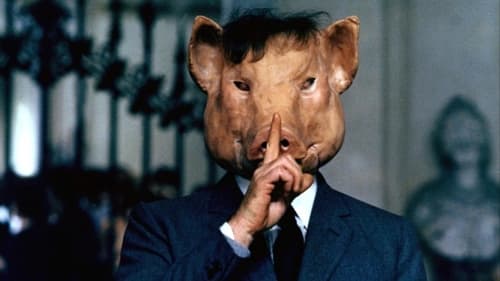
Writer
En esta película acontecen dos historias en un pasado indeterminado: por un lado, la historia de Julián, que rechaza casarse con su prometida en protesta por los negocios de su padre con los nazis; y, por otro lado, la historia de un caníbal que deambula en busca de humanos que comer.

Director
En esta película acontecen dos historias en un pasado indeterminado: por un lado, la historia de Julián, que rechaza casarse con su prometida en protesta por los negocios de su padre con los nazis; y, por otro lado, la historia de un caníbal que deambula en busca de humanos que comer.

Screenplay
A beautiful smiling guy's walking on the streets of a city, bringing with him a large paper poppy. The boy is the goodness and innocence of youth, which is soon cut short by human wickedness.

Director
A beautiful smiling guy's walking on the streets of a city, bringing with him a large paper poppy. The boy is the goodness and innocence of youth, which is soon cut short by human wickedness.

Screenplay
A beautiful smiling guy's walking on the streets of a city, bringing with him a large paper poppy. The boy is the goodness and innocence of youth, which is soon cut short by human wickedness. Indeed, while the merry boy is walking, the episode shows the evil done by man during the Second World War.

Director
A beautiful smiling guy's walking on the streets of a city, bringing with him a large paper poppy. The boy is the goodness and innocence of youth, which is soon cut short by human wickedness. Indeed, while the merry boy is walking, the episode shows the evil done by man during the Second World War.
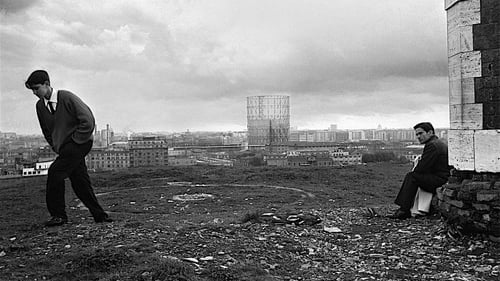
Writer
Cinco directores ofrecen sendas historias en las que se entremezclan el amor y la rabia.

Director
Cinco directores ofrecen sendas historias en las que se entremezclan el amor y la rabia.

Writer
The tragic and self-destructive sexual battle between a man and his wife. A drama for the desperate struggle of those who are different against the normality that rejects the margins. The couple is preparing to consume a relationship of extreme sadomasochism. Recorded theatre production.

Director
The tragic and self-destructive sexual battle between a man and his wife. A drama for the desperate struggle of those who are different against the normality that rejects the margins. The couple is preparing to consume a relationship of extreme sadomasochism. Recorded theatre production.

Screenplay
A una familia de clase alta italiana, compuesta por un matrimonio, un hijo y una hija, llega un misterioso joven que irá alterando el comportamiento de todos ellos. Polémica película -fue declarada inmoral por la Iglesia- del siempre controvertido Pier Paolo Pasolini. (FILMAFFINITY)

Director
A una familia de clase alta italiana, compuesta por un matrimonio, un hijo y una hija, llega un misterioso joven que irá alterando el comportamiento de todos ellos. Polémica película -fue declarada inmoral por la Iglesia- del siempre controvertido Pier Paolo Pasolini. (FILMAFFINITY)

Writer
A 1968 short documentary film by Pier Paolo Pasolini where he visits India in the search of a king who could give up his body to feed a starving tiger.

Self
A 1968 short documentary film by Pier Paolo Pasolini where he visits India in the search of a king who could give up his body to feed a starving tiger.

Director
A 1968 short documentary film by Pier Paolo Pasolini where he visits India in the search of a king who could give up his body to feed a starving tiger.

Writer
Dividida en seis historias: "La niñera" de Monicelli, "El monstruo del domingo" de Steno, "¿Por qué?" de Bolognini, "¿Qué son las nubes?" de Pasolini, "Viaje de trabajo" de Rossi y Zac, y "Los celos" de Bolognini.

Director
Dividida en seis historias: "La niñera" de Monicelli, "El monstruo del domingo" de Steno, "¿Por qué?" de Bolognini, "¿Qué son las nubes?" de Pasolini, "Viaje de trabajo" de Rossi y Zac, y "Los celos" de Bolognini.

Writer
Some puppets come to life in a theater with no windows. This time the puppets interpret William Shakespeare's Othello.

Director
Some puppets come to life in a theater with no windows. This time the puppets interpret William Shakespeare's Othello.
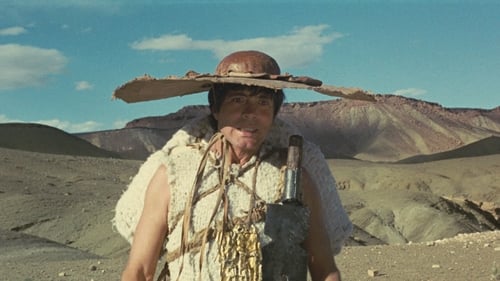
High Priest (uncredited)
Edipo, hijo de Layo y Yocasta, reyes de Tebas, es abandonado de niño para que se muera, al conocer por una profecía que será el asesino de su padre. Pero el niño es salvado y adoptado por el rey de Corinto. Sin conocer sus orígenes, regresa a Tebas cuando ya es adulto y se cruza en su camino con Layo. Tras una discusión, lo mata, sin saber que era su padre. Posteriormente contrae matrimonio en Tebas con la viuda del rey, es decir, su propia madre.

Writer
Edipo, hijo de Layo y Yocasta, reyes de Tebas, es abandonado de niño para que se muera, al conocer por una profecía que será el asesino de su padre. Pero el niño es salvado y adoptado por el rey de Corinto. Sin conocer sus orígenes, regresa a Tebas cuando ya es adulto y se cruza en su camino con Layo. Tras una discusión, lo mata, sin saber que era su padre. Posteriormente contrae matrimonio en Tebas con la viuda del rey, es decir, su propia madre.

Director
Edipo, hijo de Layo y Yocasta, reyes de Tebas, es abandonado de niño para que se muera, al conocer por una profecía que será el asesino de su padre. Pero el niño es salvado y adoptado por el rey de Corinto. Sin conocer sus orígenes, regresa a Tebas cuando ya es adulto y se cruza en su camino con Layo. Tras una discusión, lo mata, sin saber que era su padre. Posteriormente contrae matrimonio en Tebas con la viuda del rey, es decir, su propia madre.

Father Juan
Tras la muerte de sus padres en una masacre dirigida por Ferguson (Mark Damon), un niño mexicano (Lou Castel) es adoptado por un pastor evangélico, que lo educa en el uso de las armas. Cuando se hace mayor, intenta rescatar a su hermana adoptiva, que se ha escapado con una compañía de variedades y ha caído en las garras de Ferguson.
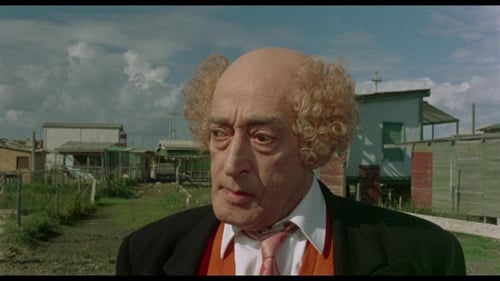
Story
Film dividido en cinco episodios protagonizados por Silvana Mangano. En "La bruja quemada viva", de Luchino Visconti, una estrella de cine atraviesa una crisis emocional. En "Sentido cívico", de Mauro Bolognini, Un hombre (Alberto Sordi) sufre un accidente de tráfico y Silvana Mangano se ofrece a llevarlo al hospital en su coche. En "La Tierra vista desde la Luna", de Pier Paolo Pasolini, Totò se ha quedado viudo y busca una mujer para él y una nueva madre para su hijo. En "La siciliana", de Franco Rossi, se narra una historia de seducción, abandono y venganza típicamente siciliana. En "Una tarde como las demás", de Vittorio De Sica, una mujer está más que harta de su aburrido esposo (Clint Eastwood).

Screenplay
Film dividido en cinco episodios protagonizados por Silvana Mangano. En "La bruja quemada viva", de Luchino Visconti, una estrella de cine atraviesa una crisis emocional. En "Sentido cívico", de Mauro Bolognini, Un hombre (Alberto Sordi) sufre un accidente de tráfico y Silvana Mangano se ofrece a llevarlo al hospital en su coche. En "La Tierra vista desde la Luna", de Pier Paolo Pasolini, Totò se ha quedado viudo y busca una mujer para él y una nueva madre para su hijo. En "La siciliana", de Franco Rossi, se narra una historia de seducción, abandono y venganza típicamente siciliana. En "Una tarde como las demás", de Vittorio De Sica, una mujer está más que harta de su aburrido esposo (Clint Eastwood).

Writer
Ciancicato Miao and his son, after the death of his wife and mother by mushroom poisoning, are dedicated to find her replacement and have no luck until they find a mysterious deaf mute green-haired woman.

Director
Ciancicato Miao and his son, after the death of his wife and mother by mushroom poisoning, are dedicated to find her replacement and have no luck until they find a mysterious deaf mute green-haired woman.

Director
Film dividido en cinco episodios protagonizados por Silvana Mangano. En "La bruja quemada viva", de Luchino Visconti, una estrella de cine atraviesa una crisis emocional. En "Sentido cívico", de Mauro Bolognini, Un hombre (Alberto Sordi) sufre un accidente de tráfico y Silvana Mangano se ofrece a llevarlo al hospital en su coche. En "La Tierra vista desde la Luna", de Pier Paolo Pasolini, Totò se ha quedado viudo y busca una mujer para él y una nueva madre para su hijo. En "La siciliana", de Franco Rossi, se narra una historia de seducción, abandono y venganza típicamente siciliana. En "Una tarde como las demás", de Vittorio De Sica, una mujer está más que harta de su aburrido esposo (Clint Eastwood).

Self
In this documentary, giants of italian cinema such as Rossellini, De Sica, Fellini and Zavattini talk about the importance of cinema after WW2, and about huge moments of social rebellion. This movie gives the floor to the creators of italian neorealism.

Himself
Portrait of Pier Paolo Pasolini and his literary and cinematographic activity in the proletarian Rome.

Himself
Ezra Pound, an acclaimed modern American poet living in Rapallo, was tried for treason because of his radio broadcasts extolling Mussolini. This is Pasolini's interview with him.

Director
Ezra Pound, an acclaimed modern American poet living in Rapallo, was tried for treason because of his radio broadcasts extolling Mussolini. This is Pasolini's interview with him.
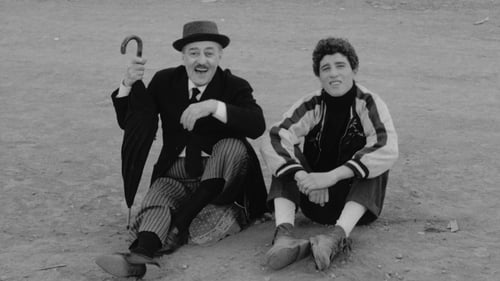
Story
Un hombre mayor y su hijo caminan por unos míseros arrabales. Entre insólitos encuentros, aparece un cuervo que habla y San Francisco de Asís, que les manda predicar a halcones y palomas.

Screenplay
Un hombre mayor y su hijo caminan por unos míseros arrabales. Entre insólitos encuentros, aparece un cuervo que habla y San Francisco de Asís, que les manda predicar a halcones y palomas.

Director
Un hombre mayor y su hijo caminan por unos míseros arrabales. Entre insólitos encuentros, aparece un cuervo que habla y San Francisco de Asís, que les manda predicar a halcones y palomas.

Writer
In 1963, accompanied by a newsreel photographer and a Catholic priest, Piero Paolo Pasolini traveled to Palestine to investigate the possibility of filming his biblical epic The Gospel According to Matthew in its approximate historical locations. Edited by The Gospel‘s producer for potential funders and distributors, Seeking Locations in Palestine features semi-improvised commentary from Pasolini as its only soundtrack. As we travel from village to village, we listen to Pasolini’s idiosyncratic musings on the teachings of Christ and witness his increasing disappointment with the people and landscapes he sees before him. Israel, he laments, is much too modern. The Palestinians, much too wretched; it would be impossible to believe the teachings of Jesus had reached these faces. The Gospel According to Matthew was ultimately filmed in Southern Italy. Mel Gibson would use some of the same locations forty years later for The Passion of the Christ.

Self (uncredited)
In 1963, accompanied by a newsreel photographer and a Catholic priest, Piero Paolo Pasolini traveled to Palestine to investigate the possibility of filming his biblical epic The Gospel According to Matthew in its approximate historical locations. Edited by The Gospel‘s producer for potential funders and distributors, Seeking Locations in Palestine features semi-improvised commentary from Pasolini as its only soundtrack. As we travel from village to village, we listen to Pasolini’s idiosyncratic musings on the teachings of Christ and witness his increasing disappointment with the people and landscapes he sees before him. Israel, he laments, is much too modern. The Palestinians, much too wretched; it would be impossible to believe the teachings of Jesus had reached these faces. The Gospel According to Matthew was ultimately filmed in Southern Italy. Mel Gibson would use some of the same locations forty years later for The Passion of the Christ.

Director
In 1963, accompanied by a newsreel photographer and a Catholic priest, Piero Paolo Pasolini traveled to Palestine to investigate the possibility of filming his biblical epic The Gospel According to Matthew in its approximate historical locations. Edited by The Gospel‘s producer for potential funders and distributors, Seeking Locations in Palestine features semi-improvised commentary from Pasolini as its only soundtrack. As we travel from village to village, we listen to Pasolini’s idiosyncratic musings on the teachings of Christ and witness his increasing disappointment with the people and landscapes he sees before him. Israel, he laments, is much too modern. The Palestinians, much too wretched; it would be impossible to believe the teachings of Jesus had reached these faces. The Gospel According to Matthew was ultimately filmed in Southern Italy. Mel Gibson would use some of the same locations forty years later for The Passion of the Christ.
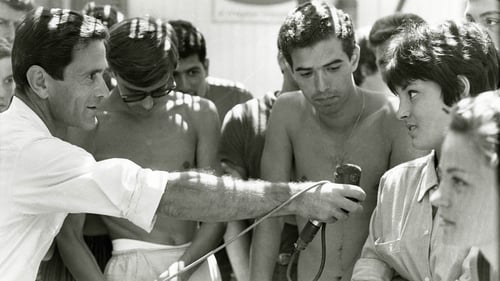
Self - Interviewer (uncredited)
Micrófono y cámara en mano, Pasolini filmó este documental en 1963, con la intención de reflejar la mentalidad italiana con respecto a la sexualidad y a las relaciones amorosas. Para ello viajó al sur y al norte, a las ciudades y a los campos, Entre los entrevistados se encuentran el poeta y premio Nobel Ungaretti y el novelista Alberto Moravia.

Director
Micrófono y cámara en mano, Pasolini filmó este documental en 1963, con la intención de reflejar la mentalidad italiana con respecto a la sexualidad y a las relaciones amorosas. Para ello viajó al sur y al norte, a las ciudades y a los campos, Entre los entrevistados se encuentran el poeta y premio Nobel Ungaretti y el novelista Alberto Moravia.
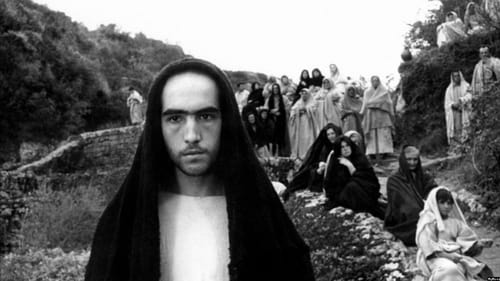
Writer
En clave neorrealista, pero sin apartarse del texto bíblico, el polémico Pasolini realiza un cercano retrato de Jesús de Nazaret.

Director
En clave neorrealista, pero sin apartarse del texto bíblico, el polémico Pasolini realiza un cercano retrato de Jesús de Nazaret.
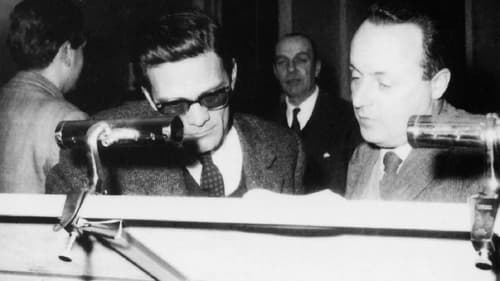
Writer
Con imágenes de archivo de los años 50, dos personalidades (Pier Paolo Pasolini y Giovanni Guareschi) responden a la misma pregunta: ¿Por qué nuestras vidas se han caracterizado siempre por el descontento, la angustia y el miedo? La película está dividida en dos partes claramente diferenciadas. En la primera parte, Pasolini responde con su convicción de hombre de izquierda; en la segunda, Guareschi, sustenta la versión conservadora.

Editor
Con imágenes de archivo de los años 50, dos personalidades (Pier Paolo Pasolini y Giovanni Guareschi) responden a la misma pregunta: ¿Por qué nuestras vidas se han caracterizado siempre por el descontento, la angustia y el miedo? La película está dividida en dos partes claramente diferenciadas. En la primera parte, Pasolini responde con su convicción de hombre de izquierda; en la segunda, Guareschi, sustenta la versión conservadora.

Director
Con imágenes de archivo de los años 50, dos personalidades (Pier Paolo Pasolini y Giovanni Guareschi) responden a la misma pregunta: ¿Por qué nuestras vidas se han caracterizado siempre por el descontento, la angustia y el miedo? La película está dividida en dos partes claramente diferenciadas. En la primera parte, Pasolini responde con su convicción de hombre de izquierda; en la segunda, Guareschi, sustenta la versión conservadora.

Screenplay
Esta película consta de cuatro historias dirigidas por Jean-Luc Godard, Ugo Gregoretti, Pier Paolo Pasolini y Roberto Rossellini.

Director
Esta película consta de cuatro historias dirigidas por Jean-Luc Godard, Ugo Gregoretti, Pier Paolo Pasolini y Roberto Rossellini.
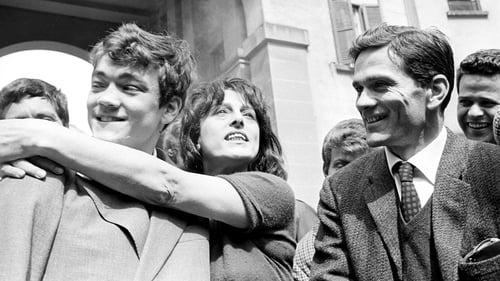
Story
Mamma Roma es una prostituta que sueña con un bienestar pequeño-burgués. Tras la boda de su protector, se traslada con su hijo Héctor a un barrio decente, donde regenta un puesto de frutas en el mercadillo popular. Héctor es un muchacho de carácter débil e influenciable que se deja arrastrar por los amigos y se enamora de Bruna, una chica que lo inicia en los secretos del amor. (FILMAFFINITY)

Screenplay
Mamma Roma es una prostituta que sueña con un bienestar pequeño-burgués. Tras la boda de su protector, se traslada con su hijo Héctor a un barrio decente, donde regenta un puesto de frutas en el mercadillo popular. Héctor es un muchacho de carácter débil e influenciable que se deja arrastrar por los amigos y se enamora de Bruna, una chica que lo inicia en los secretos del amor. (FILMAFFINITY)

Director
Mamma Roma es una prostituta que sueña con un bienestar pequeño-burgués. Tras la boda de su protector, se traslada con su hijo Héctor a un barrio decente, donde regenta un puesto de frutas en el mercadillo popular. Héctor es un muchacho de carácter débil e influenciable que se deja arrastrar por los amigos y se enamora de Bruna, una chica que lo inicia en los secretos del amor. (FILMAFFINITY)
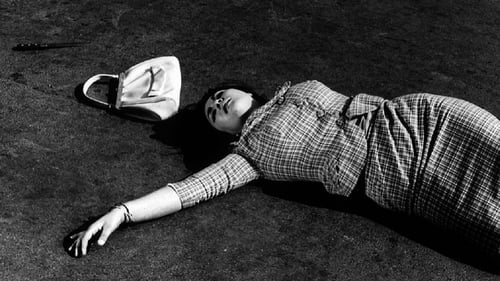
Story
La cosecha estéril. Aclamada ópera prima de un jovencísimo Bernardo Bertolucci (tenía sólo 22 años), basada en un guión de Pier Paolo Pasolini. Cerca de un parque público, en un pedregal del Tevere romano, aparece el cadáver de una prostituta. Las investigaciones de la policía se centran en el submundo romano de ladronzuelos, proxenetas y otros marginados sociales.
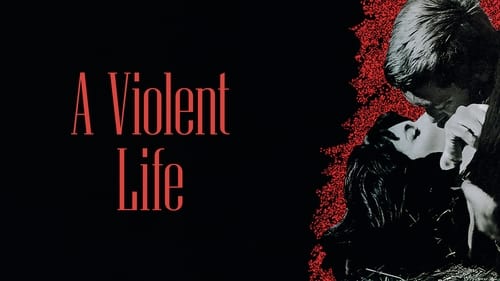
Novel
Tommaso organiza una serenata para conquistar el amor de su amada. Pero todo sale mal, y acaba peleándose con un hombre al que hiere de gravedad, por lo que es condenado a prisión. A los pocos meses sale de la cárcel con la intención de casarse con su amada. Adaptación de la novela homónima de Pier Paolo Pasolini. (FILMAFFINITY)
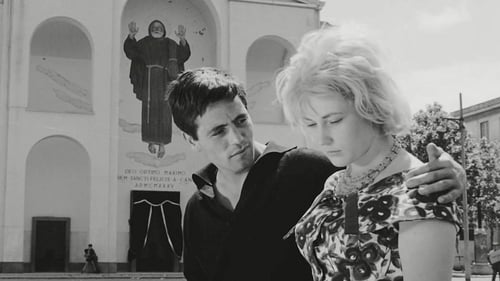
Story
Mientras que Accattone se pasa el día metido en las tabernas, Maddalena, la mujer con la que vive, debe ejercer la prostitución para mantenerlo. Cuando Maddalena es detenida y encarcelada, Accatone, privado de su medio de subsistencia, se ve condenado a llevar una vida miserable. Incluso debe pedir ayuda a su esposa legítima, Ascenza, a la que hace años abandonó.

Screenplay
Mientras que Accattone se pasa el día metido en las tabernas, Maddalena, la mujer con la que vive, debe ejercer la prostitución para mantenerlo. Cuando Maddalena es detenida y encarcelada, Accatone, privado de su medio de subsistencia, se ve condenado a llevar una vida miserable. Incluso debe pedir ayuda a su esposa legítima, Ascenza, a la que hace años abandonó.

Director
Mientras que Accattone se pasa el día metido en las tabernas, Maddalena, la mujer con la que vive, debe ejercer la prostitución para mantenerlo. Cuando Maddalena es detenida y encarcelada, Accatone, privado de su medio de subsistencia, se ve condenado a llevar una vida miserable. Incluso debe pedir ayuda a su esposa legítima, Ascenza, a la que hace años abandonó.
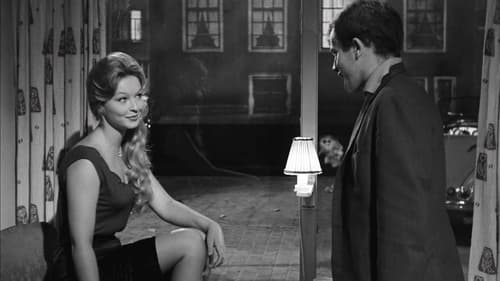
Screenplay
Dos mineros italianos, Federico y Vincenzo, pasan un fin de semana con dos prostitutas que trabajan en el barrio rojo de Amsterdam, donde se exhiben en los escaparates. Una de ellas se enamorará de Vincenzo...

Writer
A group of young thugs decides to spend New Year on the streets of Milan.
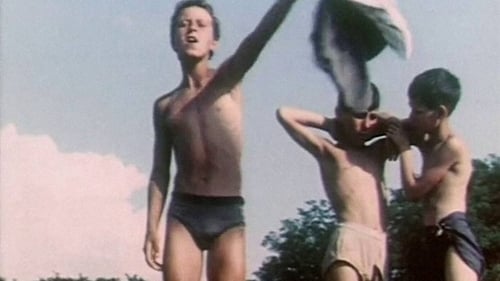
Writer
On a hot summer day, a group of boys of the Roman suburbs play and laugh in one of the many rivers that surround the city. The camera scrutinizes them, approaches them, reveals the gestures and glances, wraps them in a sort of visual dance, while the words of the commentary (entrusted to the poetic sensibility of Pier Paolo Pasolini) narrate the stories, desires, dreams, the future.
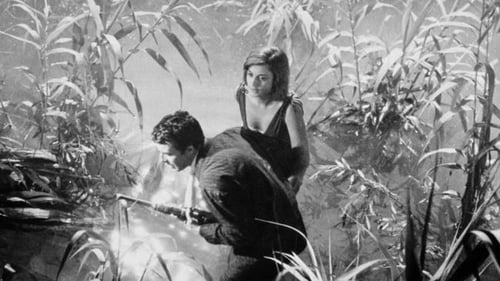
Monco
Alvaro Cosenza, also known as the Hunchback from Quarticciolo, during Rome's occupation by Nazis in 1943, decides to revolt.

Writer
A unique documentary on the traditional dirge in Griko, an ancient language of Salento.
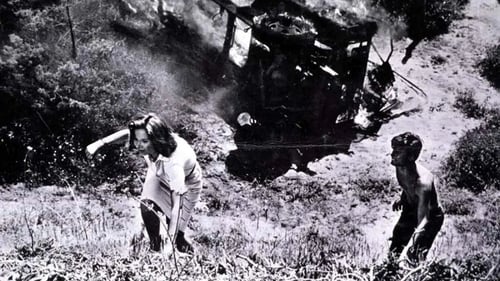
Screenplay
Guapo, barriobajero, romano, de 20 años, desempleado, y con un hijo de 20 días y con la abuela para cuidarlo, Davide pasa el día buscando trabajo, en el que será un día de locura. Inspirado en "Racconti romani" (1954) y en "Nuovi racconti romani" (1959) de Alberto Moravia.

Screenplay
Italy signed the armistice and in the general confusion a corporal decides to bring the tank back from the coast to the barracks.
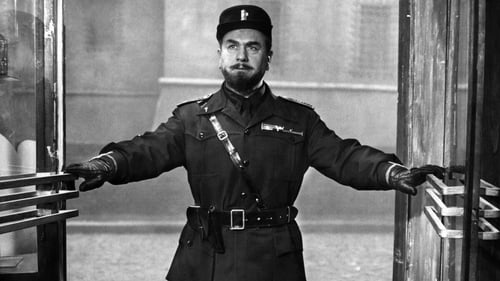
Screenplay
1943. The affair between Anna, unhappily married to wheelchair-bound Pino, and deserter Franco unfolds in foggy Ferrara, intertwining with the power struggle taking place within local Fascist ranks that culminates in a massacre of civilians, including Franco's father – Pino sees it all from his window, but will he tell anyone?
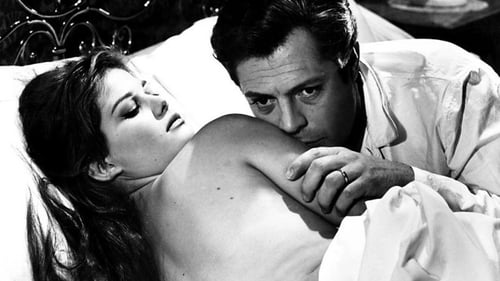
Screenplay
Después de pasar varios años en Roma, Antonio (Marcello Mastroianni) regresa a Catania (Sicilia), su ciudad natal. Tiene un gran éxito con las mujeres porque es muy atractivo y de muy buena presencia. Sus padres han pensado que Bárbara (Claudia Cardinale) es la mujer ideal para él, y Antonio decide casarse con ella.
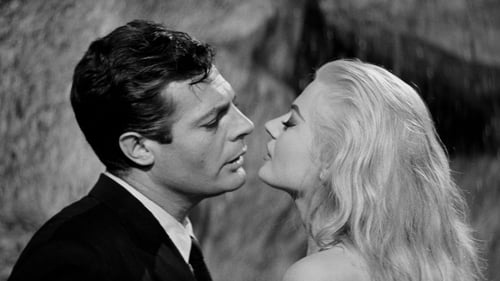
Screenplay
Marcello Rubini es un desencantado periodista romano, en busca de celebridades, que se mueve con insatisfacción por las fiestas nocturnas que celebra la burguesía de la época. Merodea por distintos lugares de Roma, siempre rodeado de todo tipo de personajes, especialmente de la élite de la sociedad italiana. En una de sus salidas se entera de que Sylvia, una célebre diva del mundo del cine, llega a Roma, cree que ésta es una gran oportunidad para conseguir una gran noticia, y, en consecuencia, la perseguirá por las noches por diferentes lugares de la ciudad.

Story
Two young people trickle, steal and exploit prostitutes.

Writer

Self
A four-part documentary series about the Italian director Federico Fellini. Episode 1: His Childhood, His Beginnings; Episode 2: His First Films; Episode 3: His Films with Giulietta Masina; Episode 4: "La dolce vita" and Neorealism.
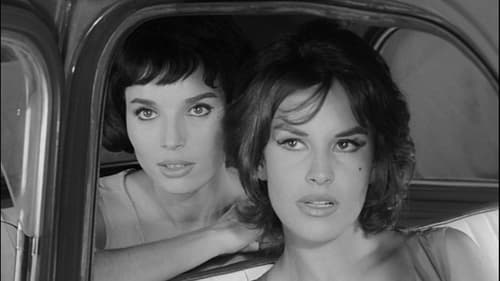
Screenplay
The exploits of three young Roman criminals are chronicled in this socially conscious drama. The young men commit petty crimes all day begin with arms theft, and culminating with a night with three streetwalkers. After their pleasure, the boys try to cheat the hookers, but they ladies are smarter than that and have stolen their cash ahead of time. It's back to the city for the boys, where they continue their destructive games...

Novel
The exploits of three young Roman criminals are chronicled in this socially conscious drama. The young men commit petty crimes all day begin with arms theft, and culminating with a night with three streetwalkers. After their pleasure, the boys try to cheat the hookers, but they ladies are smarter than that and have stolen their cash ahead of time. It's back to the city for the boys, where they continue their destructive games...

Writer

Screenplay
Una comedia en tono agridulce sobre el paso de la juventud despreocupada a la madurez de casarse y sentar la cabeza de una cuadrilla de cinco amigos.

Writer
The life, the problems, the hopes of the ragazzi of the suburbs of Rome. Ignored by the city, these young men spontaneously express their vitality, their violence, their willingness to put themselves at risk. They are at the center of "Ragazzi di vita", the first novel by Pier Paolo Pasolini, author of the text of this documentary.
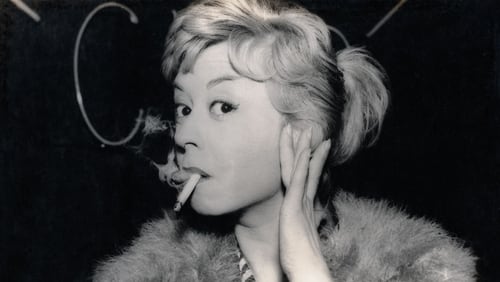
Screenplay
Cabiria es una prostituta que ejerce como tal en uno de los barrios más pobres de Roma. Sueña, sin embargo, con encontrar el amor verdadero, un hombre que la aparte de la calle y a quien pueda entregarse en cuerpo y alma. Su bondad y su ingenuidad la convierten en víctima propicia de sucesivos vividores que se aprovechan de ella, le roban y la golpean. A pesar de sus fracasos, recobra la esperanza una y otra vez. Todo parece cambiar cuando abre su corazón a un tímido contable que le propone matrimonio.
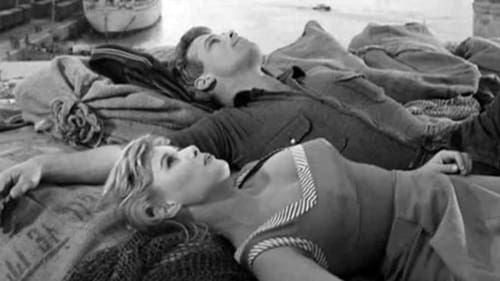
Screenplay
Vicisitudes y andanzas de una alocada jovenzuela, Marisa, la rosa de fuego, vendedora de helados y bollos en la estación de ferrocarril de Civitavecchia, en busca del príncipe azul.

Story
Vicisitudes y andanzas de una alocada jovenzuela, Marisa, la rosa de fuego, vendedora de helados y bollos en la estación de ferrocarril de Civitavecchia, en busca del príncipe azul.

Writer
At the end of the war, he was hired by Edison and in 1951 he made a film on all the important hydroeletrical plants built in that period. In the following years, Olmi directed around 40 documentaries, including La diga del ghiacciaio, Pattuglia di Passo San Giacomo, Tre fili fino a Milano, Michelino 1aB (written by Goffredo Parise), Manon finestra 2 and Grigio (whose screenplay was written by Pier Paolo Pasolini).

Writer
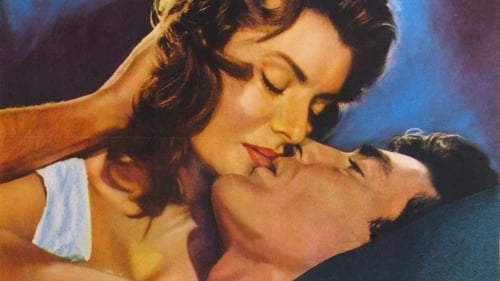
Dialogue
La joven Nives vive sola en una casa junto al río. En su trabajo, el dicharachero Bruno trata inútilmente de conquistarla.

Screenplay
La joven Nives vive sola en una casa junto al río. En su trabajo, el dicharachero Bruno trata inútilmente de conquistarla.

Author
En sueños y visiones lo atormentan recuerdos con un trasfondo simbólico. Es el triste estado de un hombre que no puede aceptar que está envejeciendo. Por eso también se esfuerza por destruir la virilidad de su hijo.
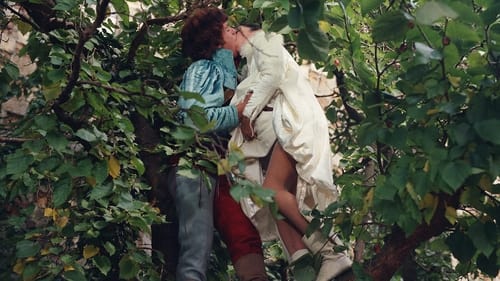
Writer
Pier Paolo Pasolini's controversial medieval Trilogy of Life includes The Decameron (1971), The Canterbury Tales (1972) and Arabian Nights (1974).

Director
Pier Paolo Pasolini's controversial medieval Trilogy of Life includes The Decameron (1971), The Canterbury Tales (1972) and Arabian Nights (1974).

Writer
In the spring of 1970, between the African Orestiade and The Decameron, Pasolini shot a film for which he wrote a commentary in verses but never finished editing. The film was born as a typical Pasolini intervention: filming the strike of the garbage collectors in Rome, who at the time worked in dramatic health conditions, and filming the humility of their daily work, amidst the waste and scraps of society, in the squares and in the streets. Pasolini also filmed the faces of garbage collectors engaged in claims discussions and the result was an extraordinary anthropological picture of an unknown humanity.

Director
In the spring of 1970, between the African Orestiade and The Decameron, Pasolini shot a film for which he wrote a commentary in verses but never finished editing. The film was born as a typical Pasolini intervention: filming the strike of the garbage collectors in Rome, who at the time worked in dramatic health conditions, and filming the humility of their daily work, amidst the waste and scraps of society, in the squares and in the streets. Pasolini also filmed the faces of garbage collectors engaged in claims discussions and the result was an extraordinary anthropological picture of an unknown humanity.
